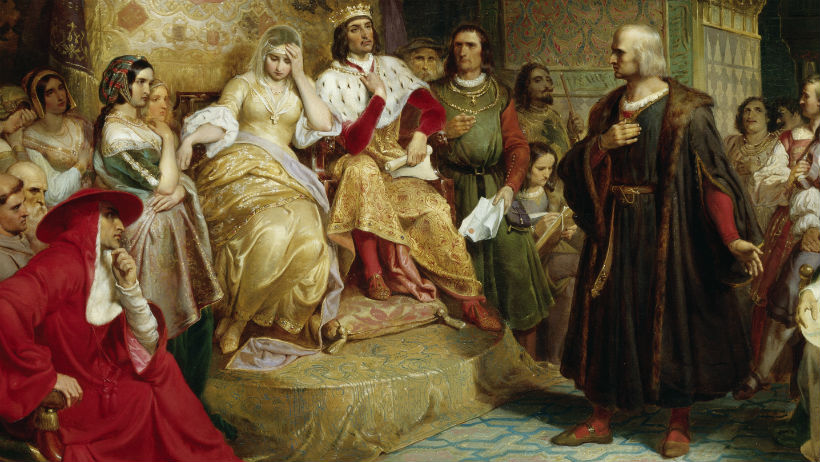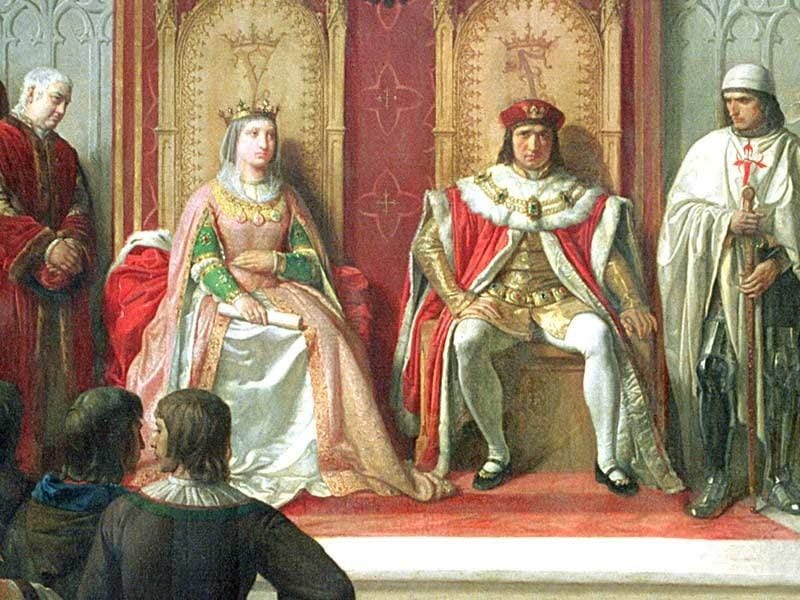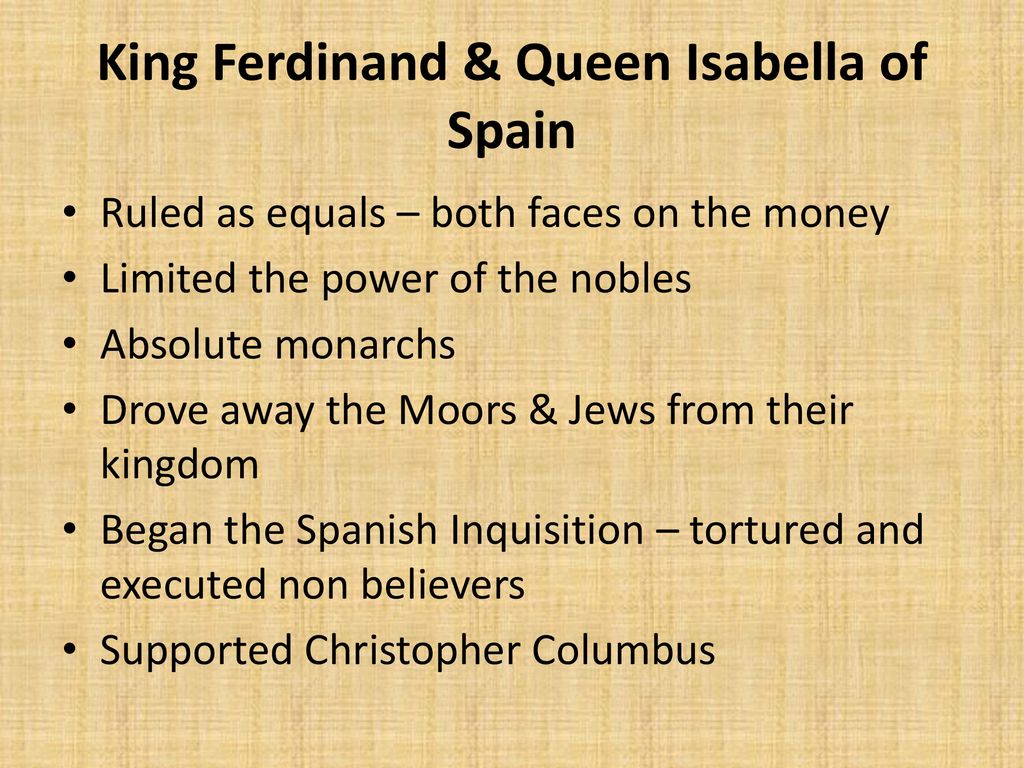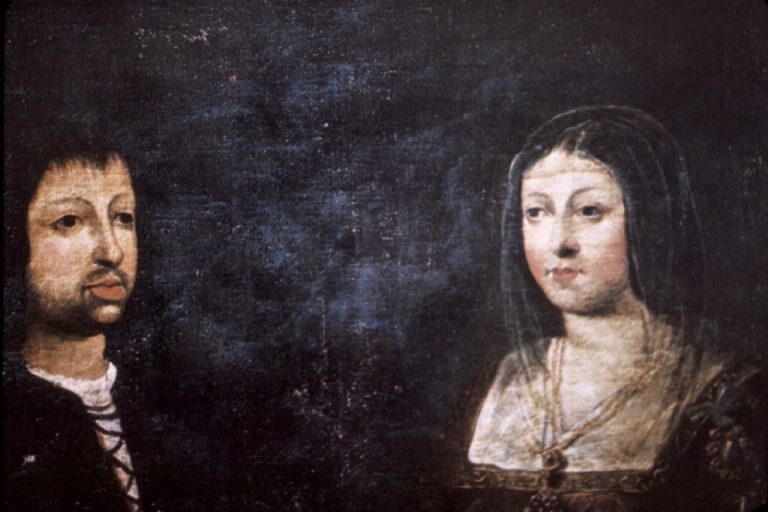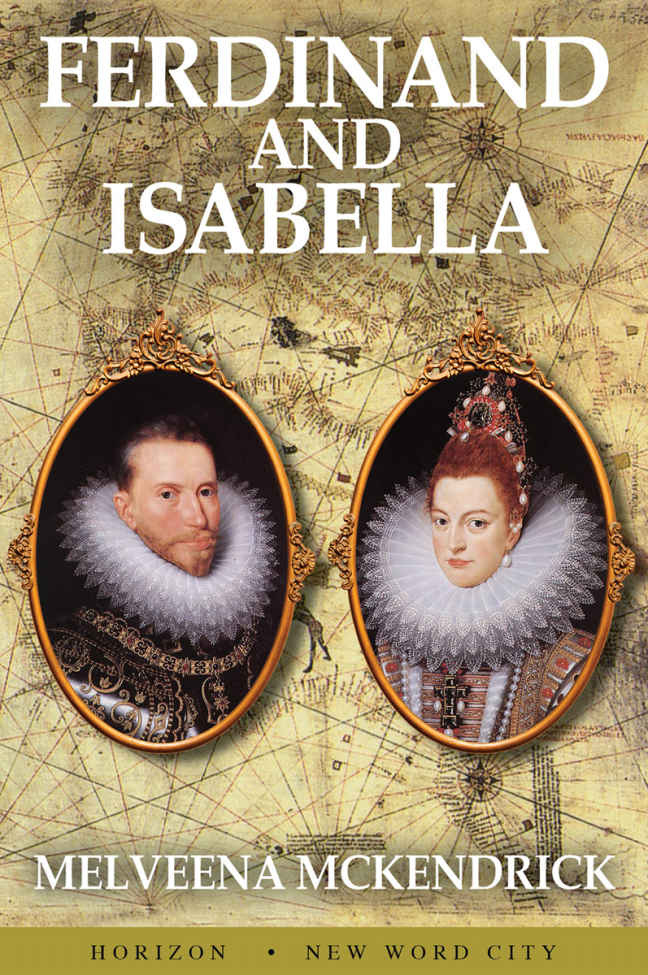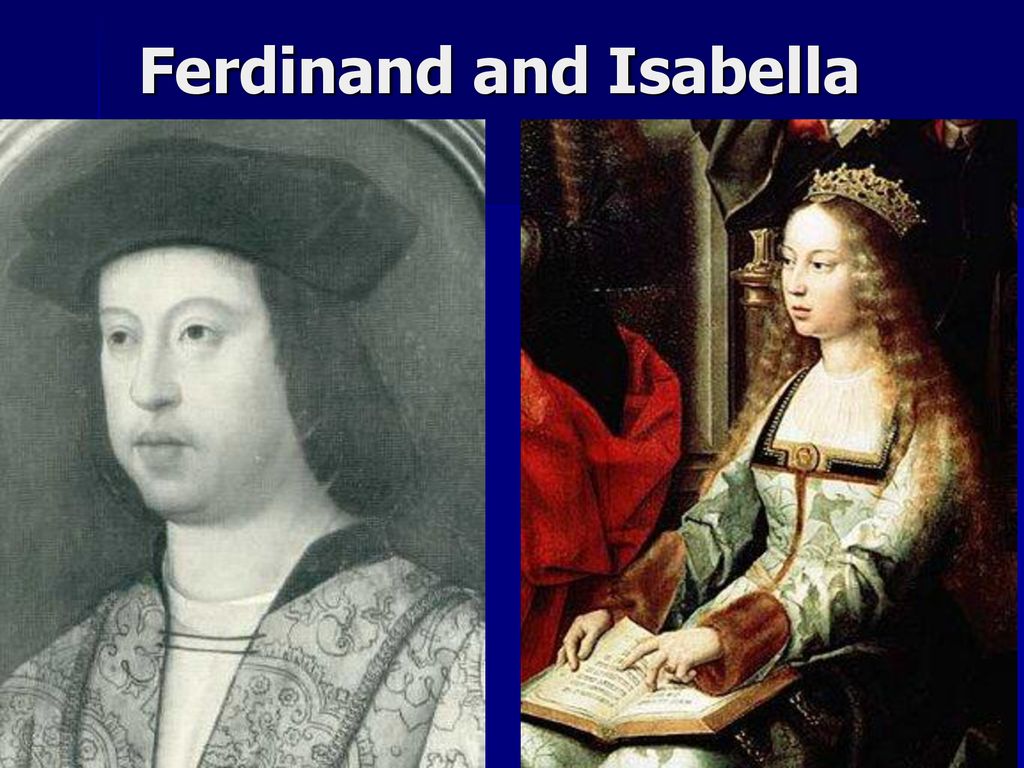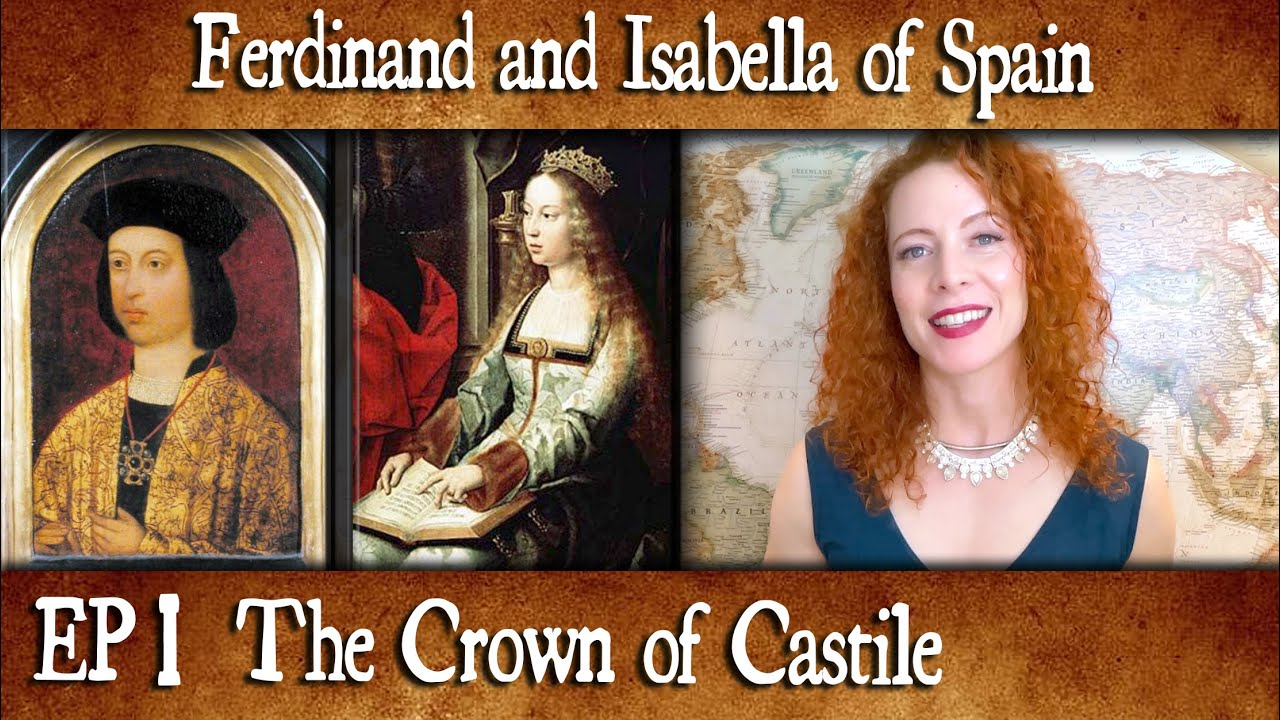Ferdinand And Isabella Profiles In Power

Imagine the scent of orange blossoms hanging heavy in the Andalusian air, the rhythmic clip-clop of horses on cobblestone streets, and the murmur of anticipation rippling through a crowd gathered beneath the banners of Castile and Aragon. The year is 1492. The world is on the cusp of monumental change, and at the heart of it all stand two figures: Ferdinand II of Aragon and Isabella I of Castile. Their intertwined destinies, forged through a marriage of political expediency and genuine affection, would reshape not only Spain but the very course of global history.
This is the story of Ferdinand and Isabella, the Catholic Monarchs, a power couple whose reign marked a pivotal moment in Spanish history. They unified a fractured kingdom, completed the Reconquista, sponsored Columbus's voyage to the New World, and laid the foundation for Spain's Golden Age. This article explores their ascent to power, their key policies, and their enduring legacy, offering a glimpse into the lives of two remarkable individuals who shaped an era.
The Road to Unity: A Marriage of Kingdoms
Isabella inherited the throne of Castile in 1474 amidst fierce opposition. Her claim was challenged by Juana la Beltraneja, leading to a civil war that tested Isabella's resolve and strategic acumen.
Ferdinand, heir to the throne of Aragon, recognized the potential benefits of an alliance. Their marriage in 1469 was a carefully orchestrated political move, uniting the two largest and most powerful kingdoms on the Iberian Peninsula.
However, it was not merely a marriage of convenience. Historians suggest a genuine affection and mutual respect developed between Ferdinand and Isabella, crucial for their collaborative rule.
The Reconquista: A Defining Triumph
The Reconquista, the centuries-long campaign to reclaim the Iberian Peninsula from Muslim rule, was a central objective of Ferdinand and Isabella's reign. Granada, the last Moorish stronghold, became their ultimate target.
After years of relentless campaigning, Granada finally fell in 1492. This victory was a defining moment, solidifying their power and prestige both at home and abroad.
The surrender of Granada marked the end of an era and the triumph of Christian Spain.
1492: A Year of Transformation
1492 was a watershed year for Ferdinand and Isabella. Beyond the victory in Granada, they made another decision that would irrevocably alter the world: the sponsorship of Christopher Columbus's voyage.
Driven by a thirst for new trade routes and fueled by a spirit of exploration, Columbus sought a westward passage to the Indies.
While their motives were complex, combining religious zeal with economic ambition, the consequences of their decision were undeniable: the opening of the Americas to European colonization.
Consolidation of Power: Policies and Impact
Ferdinand and Isabella implemented a series of policies designed to consolidate their power and strengthen the monarchy. They reformed the legal system, streamlined the bureaucracy, and curtailed the power of the nobility.
The establishment of the Spanish Inquisition, while controversial, was intended to ensure religious uniformity and suppress heresy. Its methods, however, were often brutal and unjust.
Despite the criticisms, their reforms contributed to a more centralized and efficient government, laying the groundwork for Spain's future as a global power.
Legacy: A Golden Age Dawns
The reign of Ferdinand and Isabella ushered in a Golden Age for Spain. The influx of wealth from the Americas fueled economic growth and cultural flourishing.
Spanish art, literature, and architecture thrived during this period, leaving an indelible mark on European culture.
Their legacy is complex and multifaceted, marked by both triumphs and controversies. Yet, their impact on Spanish history and the broader world is undeniable.
Reflections on Their Reign
Ferdinand and Isabella were complex figures, products of their time, and driven by a combination of piety, ambition, and political pragmatism. Their decisions, both lauded and criticized, shaped the destiny of Spain and the world.
Their story serves as a reminder that even the most powerful individuals are products of their context, and their actions have far-reaching and often unforeseen consequences.
The echoes of their reign continue to resonate today, inviting us to reflect on the enduring power of leadership, the complexities of history, and the enduring quest for unity and prosperity.




